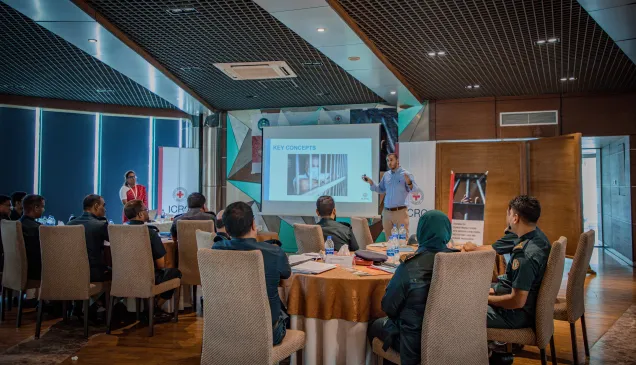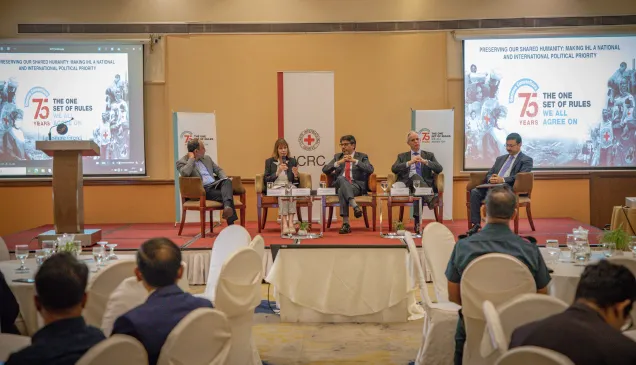Bangladesh: Overcoming physical challenges to run a successful business
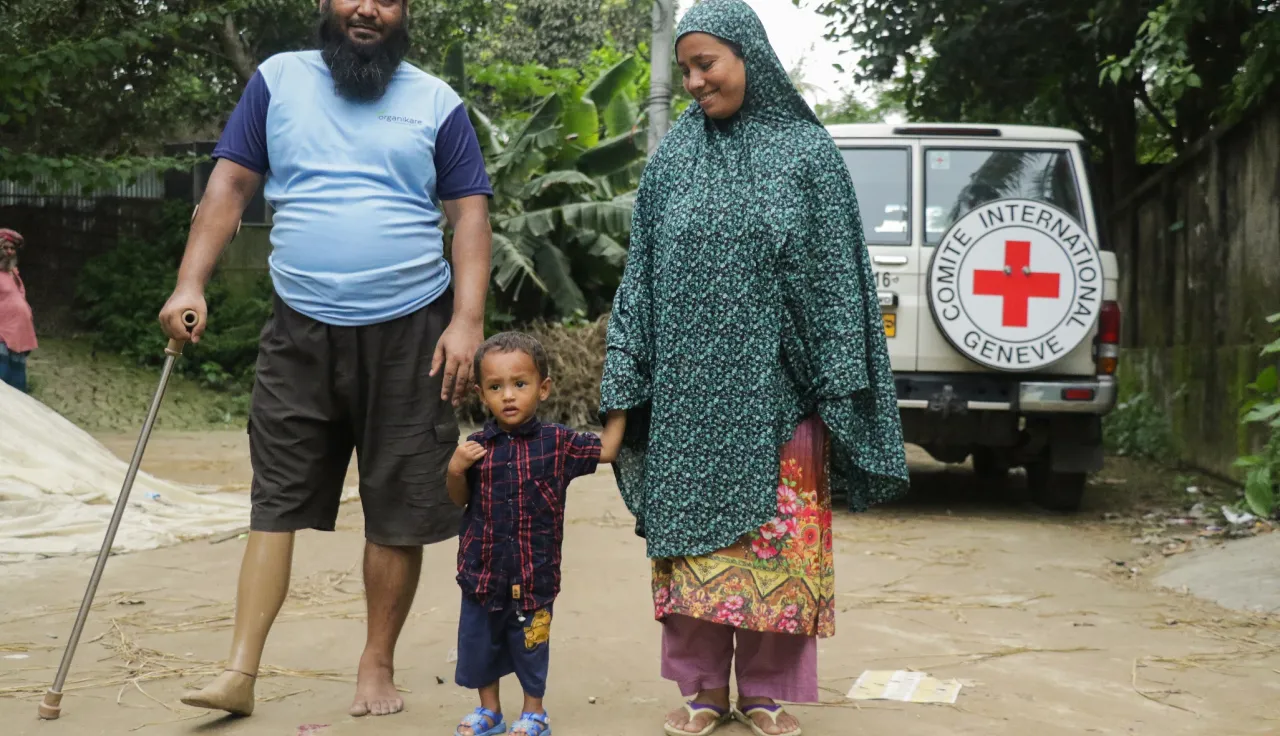
In 2019, Habibur Rahman, who worked as a helper on a bus, met with an accident when his bus swerved out of control. Rahman sustained serious injuries and his right leg had to be amputated.
The loss of his limb shattered Rahman's dreams and took a toll on his mental and physical health. He worried constantly about how to support his family of five since he was the sole breadwinner. But things began to change in 2021 when the Centre for the Rehabilitation of the Paralysed (CRP) and the International Committee of the Red Cross (ICRC) stepped in to help him.
The 40-year-old shares that after his initial treatment he realized that he would need an artificial limb to return to a life of normalcy. "Luckily, my brother, who lives in Savar, told me about the CRP's work for disabled people. I reached out to them and they helped me get back on my feet again by fitting me with a prosthetic leg," says Rahman.
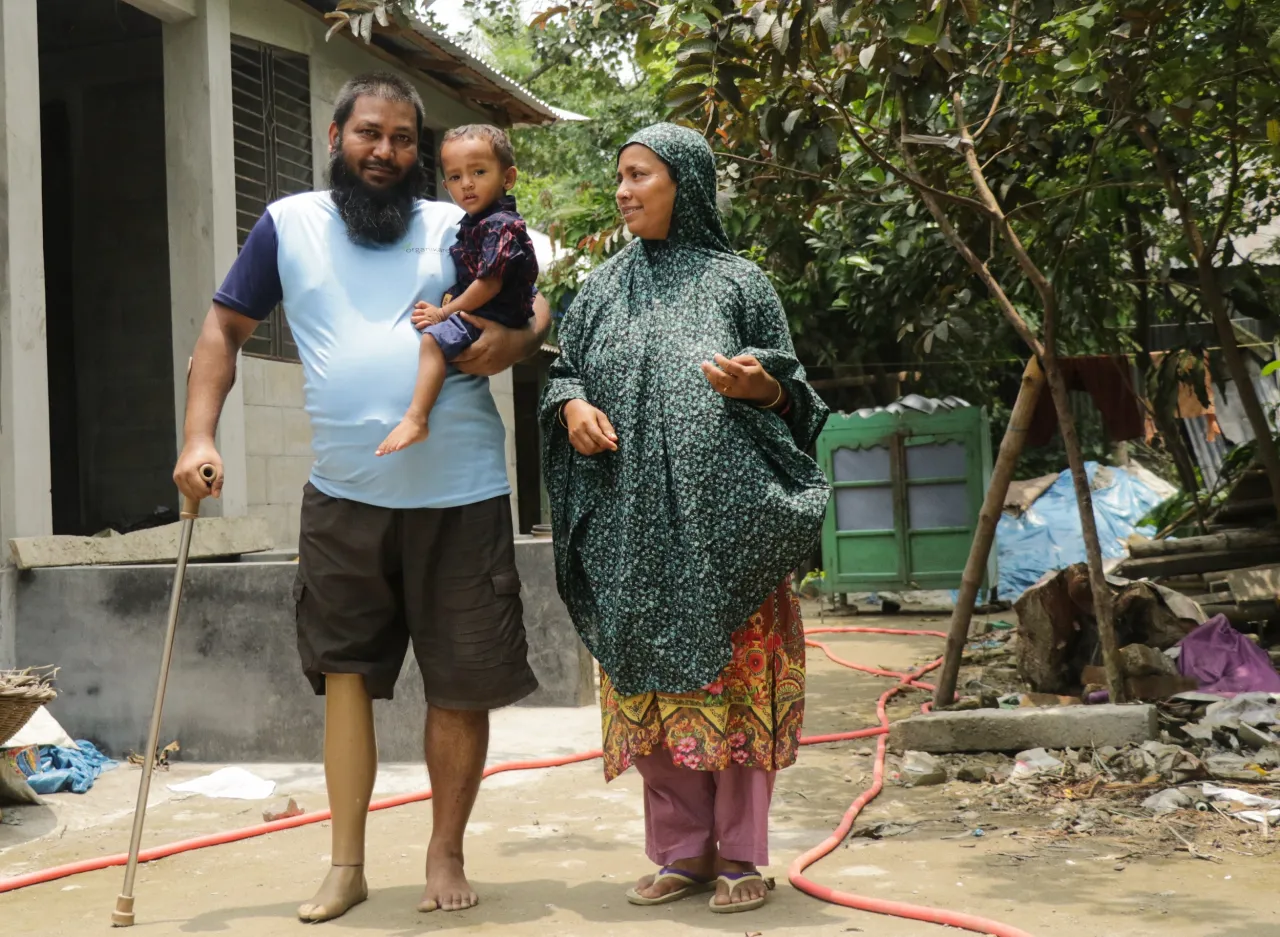
Rahman can now go to his shop on his own, without help.
Once he got comfortable using his artificial limb, Rahman began thinking of ways to support his family and set up a small grocery store just outside his home. Sometime later he again reached out to the CRP for additional help to strengthen his business. In partnership with the ICRC, the CRP gave him a cash grant to expand his store and also trained him in managing it in a sustainable way. Now a profitable business, the shop has been helping Rahman provide for his family and ensure that his children get an education. Rahman also supports other business owners in his neighbourhood who come to him for advice on how to run their businesses.
Thankful for the timely support he received from the ICRC and CRP for his treatment and to establish a sustainable livelihood, Rahman says,
They helped me when I was in dire need. Such support is crucial for disabled people, who are often seen as a burden to society.
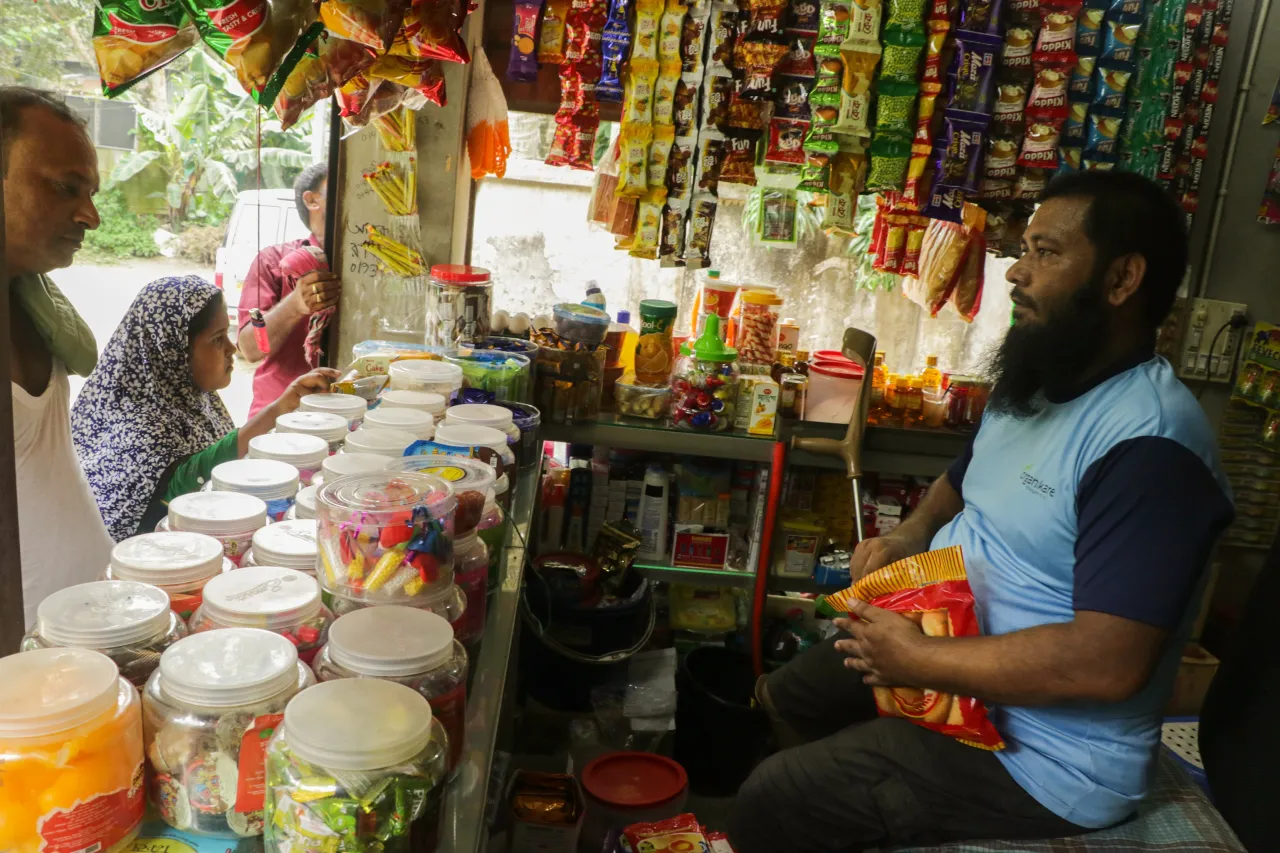
Rahman at his grocery shop, which he opened through the ICRC’s microeconomic initiatives programme.
Microeconomic initiatives for people with disabilities
The ICRC has been supporting the CRP's prosthetic and orthotic department in Savar since 2003, equipping the physical rehabilitation centre and promoting social inclusion activities to improve the quality of life of people with disabilities. It also financially supports several students to enroll in courses offered by the CRP.
In 2021, the ICRC's Physical Rehabilitation Programme (PRP) supported 3,613 disabled people by providing prostheses, orthoses or other assistive devices and physiotherapy services.
Md Mahafuzul Haque, an economic security coordinator with the ICRC, shares, "In 2018, the PRP and the economic security unit developed a project under microeconomic initiatives (MEI) to help people with disabilities start or re-start income generating activities and gain financial independence. This initiative is being implemented in partnership with the CRP. Over the past three years, more than 275 people with disabilities were given cash grants as part of the initiative."


